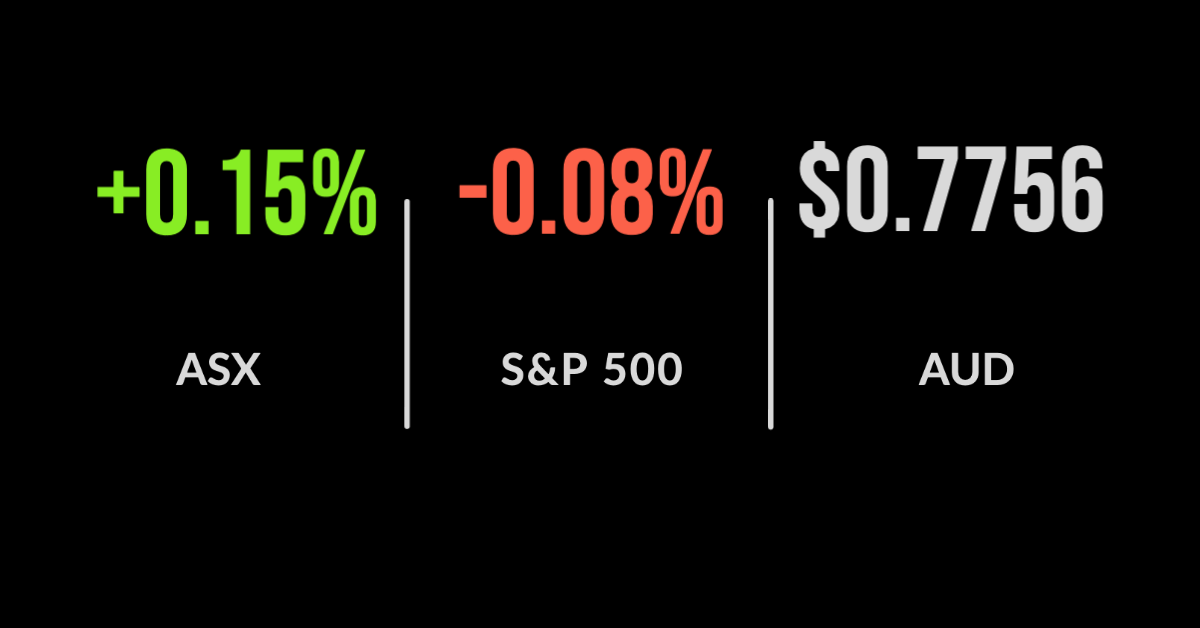ASX edges ahead after mid-week nosedive
Another weekly gain, inflation headwinds, Kogan canned, IPOs pulled
The ASX200 (ASX:XJO) finished Friday on a positive note, up 0.2%, delivering a weekly gain of the same amount.
For the day, only the materials and energy sectors finished lower, the latter on concerns of a boost in supply from Iran.
The consumer staples and healthcare sectors were both up over 1.7%; CSL (ASX:CSL) was a key contributor finishing 2.2% higher.
The pain continued to pile up during the week with some high profile growth companies seeing significant sell-offs as reality catches up to expectations.
Redbubble (ASX:RBL) fell another 4.4% but all eyes were on online marketplace and Amazon lookalike Kogan (ASX:KGN), which fell 14.3% after flagging ‘supply chain disruptions’ and downgrading earnings.
There was a lot of management speak, highlighting ‘supply chain inefficiencies’ and ‘inventory planning challenges’ caused by ‘market dislocations’.
But ultimately it appears Kogan loaded up on too much stock following a bumper 2020 and is now struggling to sell it. The result is higher costs and weaker margins.
Across the week, EML Payments (ASX:EML) was the biggest detractor falling 34.6% on regulatory concerns.
Both Appen (ASX:APX) and Xero (ASX:XRO) showed resilience from the tech sell-off to jump 19.4% and 13.1% respectively.
Tech back in favour, market loses direction, mixed data prevails
US markets ended what was a busy week all but flat, with the Dow Jones up 0.4% on Friday, the S&P500 down 0.1%, and the Nasdaq down 0.5%.
Across the week, the result was similar with Nasdaq pulling out a 0.3% gain whilst the Dow and S&P500 were both down over 0.5%.
Some level of sanity appears to be coming into markets after what has been an eventful start to the year.
With earnings season in the rearview delivering generally positive results, all eyes are on economic data which is far more mixed than expected.
Similarly, to Australia, it is unlikely the Federal Reserve will make any changes in the short-term.
Bitcoin was all the talk this week with the digital asset down over 40% from its high in April.
There are increasing signs that day traders and speculators have moved out of stock markets into crypto, likely contributing to the less volatile conditions seen in recent weeks.
Shares in AT&T (NYSE:T) were down over 10% for the week after announcing a planned demerger and cutting their dividend.
Meanwhile, NVIDIA (NYSE:NVDA) is capitalising on a strong semiconductor market to undertake a stock split, shares finished the week up 2.6%.
Leadership now key, self-inflicted inflation, austerity or deficits
The first takeaway this week follows on from Kogan’s downgrade and the series of unexpected difficulties from other popular mid-sized companies, which is the growing importance of leadership.
With low interest rates sending all assets higher but particularly those delivering high top-line growth rates, the ability to execute and manage that growth is more important than ever.
Planning for a spike in sales that never comes, or organising a difficult scaling up of a once small business requires a unique skill set.
Following on from this is the current obsession with inflation, at least in the financial press, and the fact that this has been self-inflicted.
Companies naturally cut all expenses they could in 2020, which had feedthrough down the supply chain of everything from consumer goods to commodities.
As demand now grows, many supply chains are still suffering from the pandemic and finding it difficult to restart and ramp up production, a key reason behind the likely short-term inflation spike we are about to see.
Finally, this week was all about the Victorian State Budget, which was a stark difference to the Federal level, which has seen greater spending and less tax.
Governments of all levels around the world must be wary not to impose ‘austerity’ measures to ‘pay back the debt’ too soon and risk a decade of malaise not unlike that experienced by Europe post the GFC.







